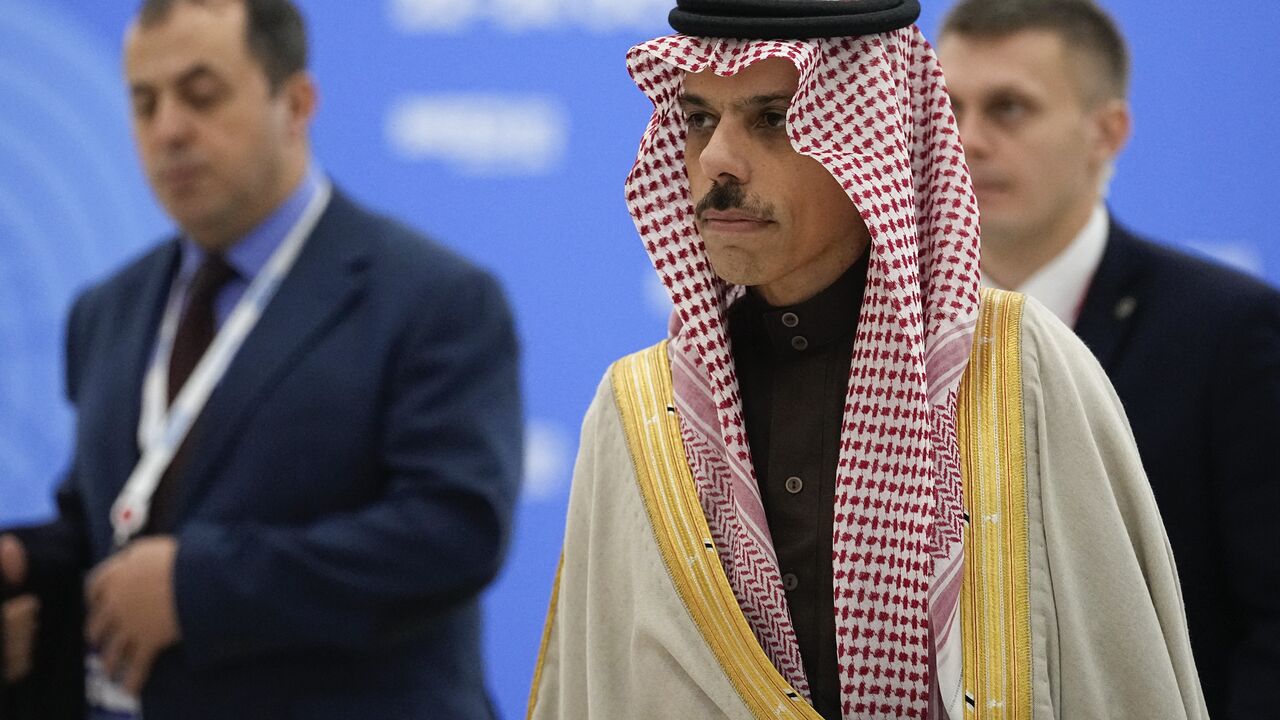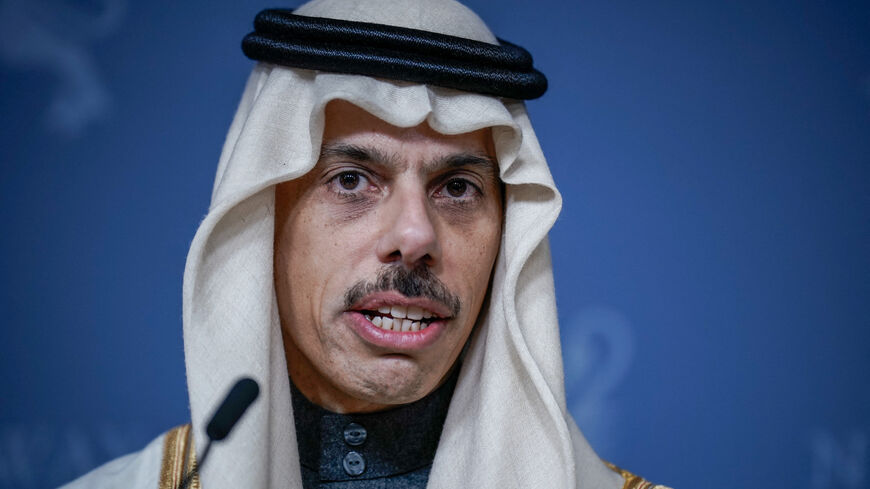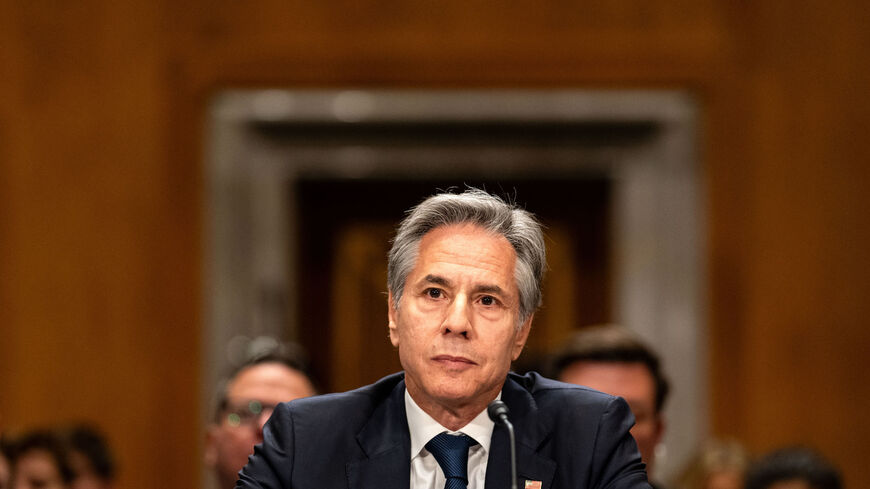Saudi-Israel normalization 'off table' until Palestinian statehood, FM says
Saudi Arabia's foreign minister has said that normalization with Israel will wait for progress on Palestinian rights.

Saudi Arabia’s foreign minister said Thursday that normalization with Israel is "off the table" until there is a "resolution to Palestinian statehood" and clarified that there is no ambiguity in Saudi policy on the conflict in Gaza.
“I would say certainly normalization with [Israel] is not just at risk. It is off the table until we have a resolution to Palestinian statehood,” Prince Faisal bin Farhan told the Future Investment Initiative forum in Riyadh.
“I would say that it is not just the issue of normalization with the kingdom that is at risk; I would say that the security of the region as a whole is at risk if we do not address the rights of the Palestinians,” he added.
He also urged the Israeli government under Prime Minister Benjamin Netanyahu to “do the moral thing” by guaranteeing Palestinians “their rights and their state.”
Last September, Saudi Arabia was said to be “inching closer” to normalizing relations with Israel, according to Saudi Crown Prince Mohammed bin Salman. However, progress stalled following the Oct. 7 attack by Hamas. As the death toll from Gaza following Israel’s retaliatory attacks mounted, Saudi Arabia joined other Arab and Islamic nations in condemning Israeli actions.
On Thursday, Prince Faisal said the kingdom’s policy toward Gaza and Palestine was “anything but ambiguous.”
“We have been quite categorical. We called for a cease-fire from the very beginning. We were very clear that even with the horrors of Oct. 7, that an overreaction by Israel was extremely dangerous,” he said.
He also said Israel’s actions in northern Gaza, with its blockade of humanitarian access as well as continued military assault, “can only be described as a form of genocide.” The death toll in Gaza has passed 44,000, according to the local health authorities.
The Saudi foreign minister also called for a cease-fire in Lebanon and an end to Israeli strikes in the country.
On Oct. 1, Israel launched a limited ground operation across the border in Lebanon and also engaged in aerial strikes across the country targeting weapons depots, infrastructure and the leadership of Hezbollah, an influential Iran-backed paramilitary group based in the country.
The strikes have so far killed more than 2,800 people, according to the Lebanese Health Ministry.
“We are not part of the direct negotiations that are going on,” Prince Faisal said. “We certainly support the effort that the US is undertaking to find a pathway to a cease-fire. I hope it comes to fruition. It's the same for Gaza,” he said.
He also clarified that Riyadh had never “disengaged” from Lebanon and said it wasn’t up to “any outside powers to tell the Lebanese what to do or to influence the political process in Lebanon.”
The Saudi foreign minister also denied reports that Saudi Arabia and Iran had held joint naval military exercises in the Red Sea.
“There haven't been any military exercises. I think given the current regional context, it's unlikely that there are going to be exercises in the near term,” he said.
Regional rivals Saudi Arabia and Iran resumed bilateral relations in March 2023 following a Chinese-mediated effort to bring the two powers back to the diplomatic table.









